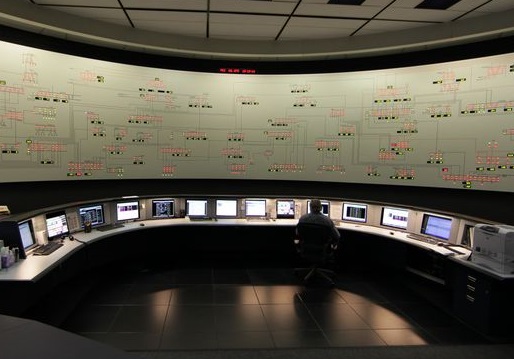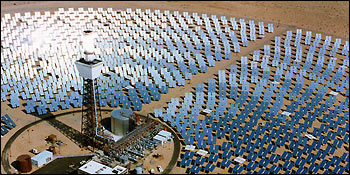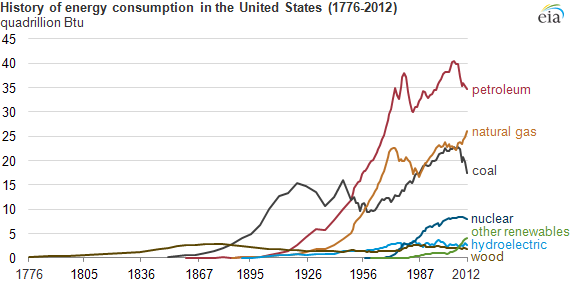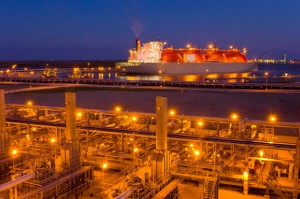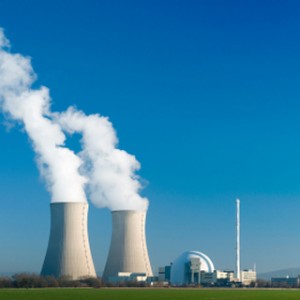86 item(s) were returned.
Senior Regulatory Attorney
Environmental Defense Fund
Two seemingly unrelated announcements drew much attention in the electric utility industry recently. First, the Edison Electric Institute and the Natural Resources Defense Council jointly recommended changing how utilities should be regulated. Second, Duke Energy announced it will sell 13 Midwest merchant power plants. These announcements are actually related, and arise because the traditional utility business model is crumbling, due to several factors: Load growth has declined, due to a slowing economy and greater use of renewable energy and energy efficiency. Utilities are no longer able to obtain economies of scale by building ever-larger plants. New regulations have resulted in… [more]
View InsightDistinguished Professor of Energy
University of California, Berkeley
This is the second in a series of discussions led by invited speakers at the upcoming Physics of Sustainable Energy conference to be held March 8-9, 2014 at the University of California, Berkeley. Find more details below. The new Ivanpah Solar Electric Generating System located in California’s Mojave Desert is the world’s largest concentrated solar thermal power station. The first of it’s kind at this scale, Ivanpah’s 392 megawatts of capacity (enough to power 140,000 homes) is generated by 360,000 garage-door-sized mirrors concentrating sunlight onto a 40-story boiler tower. The heat from the sunlight boils water in the tower and… [more]
View InsightUniversity Distinguished Professor
Michigan State University, Dept. of Chemical Engineering
It is clear that the Age of Oil is winding down. Worldwide, the rate of discovery of new oil reserves peaked in the 1960s and in the US our peak rate of oil discovery occurred in the early 1930s. In recent years the world has used about three barrels of oil for every barrel of new oil reserves discovered. Thus we are living largely on past oil discoveries. There is still a lot of oil in the world, and we will still be using a lot of oil decades from now. But it will be increasingly expensive both economically and… [more]
View InsightChairman of the Energy and Commerce Subcommittee on Energy
U.S. House of Representatives
The House Energy and Commerce Committee recently released a policy paper entitled “Prosperity at Home and Strengthened Allies Abroad – A Global Perspective on Natural Gas Exports.” Over the past year, our committee has analyzed the effects of exporting U.S. liquefied natural gas (LNG) through a series of hearings and an international forum. This report is the culmination of our efforts, detailing the economic and geopolitical benefits of U.S. LNG exports and outlining the actions necessary to realize them. Through our analysis, we found that LNG exports offer the opportunity for the U.S. to improve the domestic economy while providing… [more]
View InsightSenior Tax Counsel
United States Senate Committee on Finance
As part of his efforts to comprehensively reform the tax code, Senate Finance Committee Chairman Max Baucus (D-MT) released a staff discussion draft on December 18, 2013 that proposed a dramatically simpler set of energy tax incentives that are technology-neutral, more predictable, and promote cleaner energy that is made in the United States. Policymakers have included tax breaks for energy in the tax code for nearly one hundred years. These incentives were created with good intentions to create jobs, promote energy security, and help reduce air pollution and environmental damage. But over the years, the number of provisions has ballooned… [more]
View InsightThe boom in oil and gas production in the United States has largely been heralded as a strong economic stimulus for the economy. For example, in an August 2013 interview, McKinsey partner Scott Nyquist outlined huge economic returns through increases in capital investment and jobs in the manufacturing sector. “This is an exciting game changer for the US economy,” said Nyquist. “It can create jobs through investment in the energy sector itself and through the ripple effects in other parts of the economy. It will increase the overall GDP of the country, which will increase the overall wealth and well-being… [more]
View InsightDirector of International Public Policy and Advocacy
Global Innovation Policy Center, U.S. Chamber of Commerce
The United States is set to become the world’s number one producer of oil and gas combined. But since the oil crises of the 1970s, U.S. energy policy has been based, either implicitly or explicitly, on the assumption of scarcity of U.S. resources. This has resulted in strong support for open and transparent global energy markets, which are expected to reduce volatile (and high) prices for U.S. customers and enable U.S. companies to access foreign energy supplies. What policy makers now have to reckon with is what the re-discovery of a bounty of domestic supplies (of oil and gas) means for U.S. energy policy,… [more]
View InsightIt has been recently suggested that natural gas is a more climate friendly alternative to many fossil fuels, and a necessary “bridge” to a low carbon future. The main component of natural gas is methane, which is a powerful GHG that has significantly more heat trapping potential than CO2. Natural gas is the cleanest burning fossil fuel, yet when it is extracted from the ground, unburned methane can escape into the atmosphere. Significant discussion has developed around the extent of these fugitive emissions and whether they undermine the climate benefits of using natural gas as a primary fuel. A 2011… [more]
View InsightPresident
Kadak Associates, Inc.
The availability of cheap natural gas in the United States has stalled the construction of new nuclear plants. While four new nuclear plants are under construction in the US, many of the proposed 15 – 20 new plants were put on “hold” pending either an increase in electricity demand or increase in the price of natural gas. However, nuclear remains the largest source of emissions-free power in the U.S. at 19% of total electricity generation. The question posed for this dialogue is whether there is a justifiable reason to build new nuclear plants to provide base load power, despite the… [more]
View InsightAdvisor
Fuel Freedom Foundation
Last week, the Tesla Model S, an electric-powered car, received the National Highway Traffic Safety Administration’s highest mark in its history of ranking cars. Consumers Reports granted the Tesla Model S ninety-nine out of 100 points in their overall measure of vehicles and Motor Trend magazine named the Model S the 2013 Car of the Year. While Tesla’s increasing appeal may lead the way toward increasing market penetration for electric vehicles (EVs) in the future, real competition, at the present time and for some time to come, will depend upon opening up the present-restrictive gasoline market to alternative fuels, like… [more]
View Insight